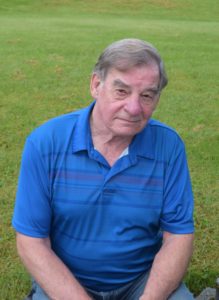The following is an article in the Pay It Forward column published in the Homer News. This column is sponsored by the Homer Foundation, a community foundation promoting local philanthropy since 1991. To learn more please visit us @ www.homerfoundation.org and like us on Facebook.
By Ken Taylor
A quote from a ten-year-old boy I heard on the radio some time ago remains in my mind, and I think of it often. “It doesn’t matter what color my friends are; all that matters is if they are mean or nice!” That little insightful piece of philosophy can be applied to many aspects of our lives, including how we think of people from other backgrounds, religions, countries, or walks of life.
In 1989, the Fish and Wildlife Service asked me to help them capture and attach satellite transmitters to walruses along the Bering Sea coast of Russia. We flew from Nome to Provideneiya in Chukotka where we met our Russian counterparts and prepared to be flown by a military helicopter to Rudder Spit, a major walrus haul-out area the next day. Unfortunately, the clouds were below the surrounding peaks, and their military prohibited their pilots from flying over ocean waters as no parts would be salvageable in the event of a crash.
Bad weather kept us in this small town for several days, which allowed us to get to know some of the townspeople. Almost no one had seen an American before, and they were anxious to entertain us. A different family would invite us for a light meal each night, followed by broken conversation. They were delightful and generous with what little they had.
Bad weather persisted, and there was no sign of a helicopter. A whaling vessel arrived in port to resupply and was headed right past Rudder Spit. The captain agreed to take us with our gear, at no charge, and after a six-hour boat ride, we arrived at our destination.
We completed our work in a week or so and waited once more for the helicopter to pick us up. Again, it never arrived, and it was several days before we spotted the same whaling vessel returning north. While it might cost them their quota, which they could ill afford, they picked us up and returned us to Provideneiya. That evening, the mayor welcomed us with a party, and many from the town attended.
Similar experiences in the early 1990s working with other Russian biologists to capture spotted seals in the Kamchatka region reinforced my positive feelings towards the Russian people. All were intelligent, friendly, generous and a pleasure to be with.
This is not the picture of Russia we see today as the horrors of the invasion of Ukraine continue with the Russian military ruthlessly and indiscriminately bombing city after city, killing thousands of innocent civilians. But this is Putin’s war, not a war of the Russian people against the people of Ukraine. None of the Russians I know support it. You may hear otherwise on the news, but our news has been reduced to simple soundbites, often overgeneralized, frequently misleading, and sometimes just wrong.
The Ukrainians are suffering horribly from Putin’s war. The Russian people are suffering as well, and it’s only going to get worse before the situation improves. My heart goes out to the people of both countries. The Russian people I know are generous, kind, giving to strangers and those in need. I fervently hope that we as Americans don’t condemn the Russian people for that which Putin and his generals are responsible and that we continue to support the many local Russian/Americans who have long been an important part of our community here in Homer.
Ken Taylor is a current Homer Foundation Board member.

